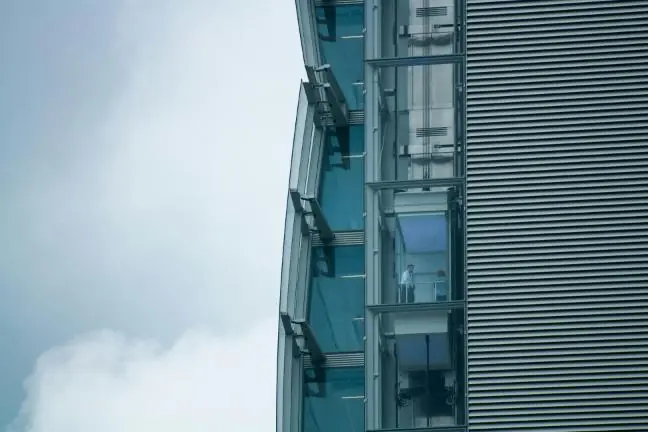Elevators are the lifelines for all buildings, serving as vital conduits for vertical transportation. In an ideal world, they should never be out of service, except for routine maintenance, repairs whether scheduled or unexpected and authority having jurisdiction inspections. Yet, building managers and owners frequently question, “How long can an elevator be out of service?” This question stems from concerns about disruptions to building operations and tenant satisfaction. The answer is straightforward: with proper maintenance and service, an elevator should never be out of service for extended periods.
The Importance of Proper Elevator Maintenance
Elevators, like any other mechanical system, require regular maintenance to function safely and efficiently. Scheduled maintenance is not just a recommendation but a necessity to prevent unplanned outages and ensure that elevators remain operational for as long as possible. Routine checks help identify potential issues early, reducing the likelihood of sudden breakdowns, however in todays’ world it seems like no one is receiving preventative maintenance.
A well-maintained elevator is rarely out of service, ensuring minimal disruption to building operations and providing safe, reliable service to occupants. In fact, the goal is to achieve zero downtime through preventative maintenance best practices.
It is disappointing when an elevator consulting firm encounters a building experiencing persistent elevator issues and rarely sees their elevator service provider. Elevator consultants work closely with these buildings to ensure they receive the necessary preventative maintenance rather than just reactive callbacks. The elevator industry, like many others, faces challenges such as labor shortages and parts availability. Regular maintenance is crucial, not only for safety reasons but also to avoid the higher costs associated with neglected maintenance. Additionally, it’s common to find invoices from service providers charging for services that should have been covered under the contract. By working with an elevator consultant, buildings can better manage these challenges and ensure their elevators are maintained efficiently and cost-effectively.

The Role of Elevator Consulting Services
Elevator consulting services play a crucial role in maintaining elevator uptime and eliminating the time buildings spend on elevators. These experts provide valuable insights into the maintenance and management of elevator systems, ensuring that all aspects of elevator operation are optimized vbased on the needs of the building. By leveraging the expertise of consultants, building owners can ensure their elevators are in top condition and compliant with safety codes and regulations.
Consultants can conduct detailed audits and assessments of existing systems, recommending proactive maintenance strategies that help avoid downtime and extend the lifespan of the equipment while reducing cost.
Factors Leading to Elevator Downtime
- Lack of Regular Maintenance: The absence of routine maintenance is a leading cause of elevator downtime. Neglected elevators are prone to unexpected failures, repairs, service calls, which can result in service outages and high cost.
- Aging Equipment: Older elevators may have issues depending the make, model and design. The age and usage of the equipment can play a key factor in aging equipment. Elevator consulting services can help you understand the true reliability and viability of your current equipment.
- Improper Use: Misuse of elevators, such as overloading beyond their weight capacity or vandalism like crashing into doors, pushing or jamming buttons, can lead to mechanical issues that necessitate repairs.
- External Factors: Power outages, surges, natural events, and other external incidents can affect elevator service. However, maintenance teams typically respond quickly to address these situations, even though they cannot control them.
Strategies to Minimize Elevator Downtime
- Regular Preventive Maintenance: Scheduled maintenance is essential to identify and address potential problems before they lead to service interruptions.
- Use of Advanced Monitoring Tools: Implementing advanced elevator monitoring service software, such as the ElevatorApp, allows building managers to track maintenance schedules, monitor elevator performance in real-time, and receive alerts about potential issues before they escalate.
- Professional Consulting Services: Engaging elevator consulting services helps building owners optimize maintenance practices and align them with industry standards. Consultants apply their expertise to develop solutions that address the building’s challenges—whether managing maintenance, addressing service gaps, conducting audits, reviewing upgrades, or resolving any other issues that arise.
- Modernization and Upgrades: For older elevators or outdated elevators, modernization or upgrading parts can enhance performance and reduce the likelihood of breakdowns.
In essence, an elevator should never be out of service for extended periods if it is properly maintained and serviced. Regular maintenance, professional consulting services, and the adoption of advanced monitoring tools with process and procedures for the building to embrace can significantly reduce downtime and ensure continuous elevator operation. By investing in preventive measures and modernization, building owners can enhance the reliability and longevity of their elevator systems, ensuring safe and efficient service for all occupants.
For building managers and owners, the key takeaway is clear: prioritize maintenance and leverage expert consulting services to keep elevators running smoothly. With the right strategies in place, building managers can minimize elevator downtime, improving tenant satisfaction and operational efficiency. Although this task is challenging, several buildings have successfully implemented these strategies.

